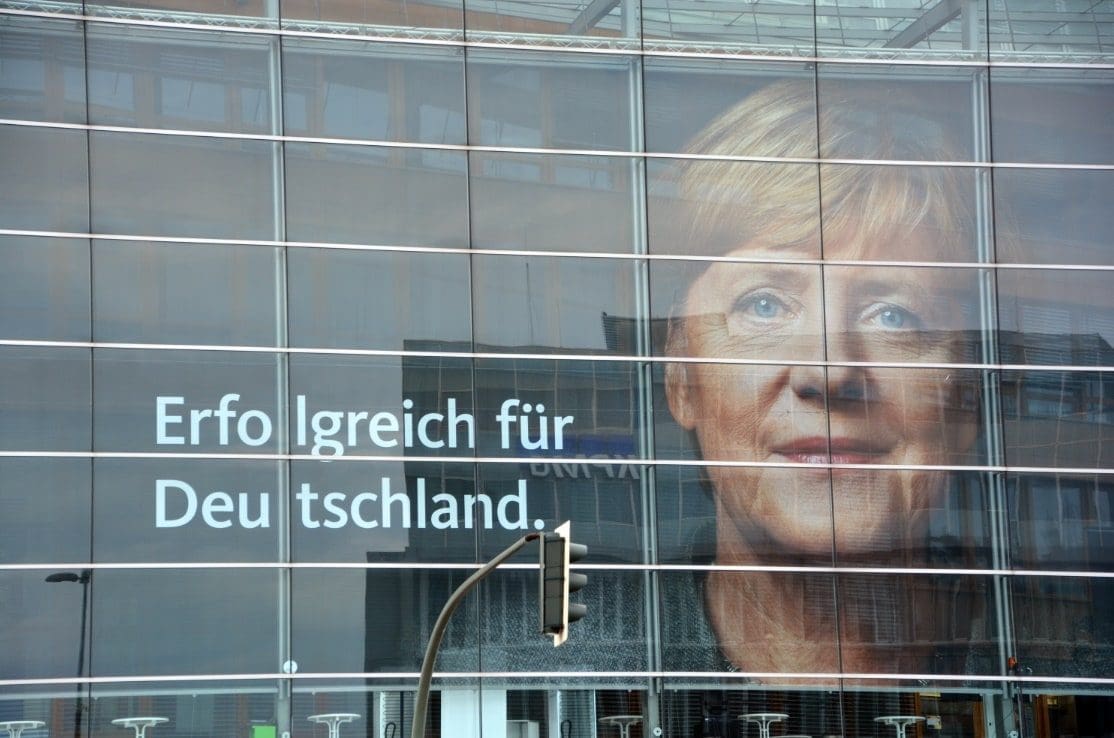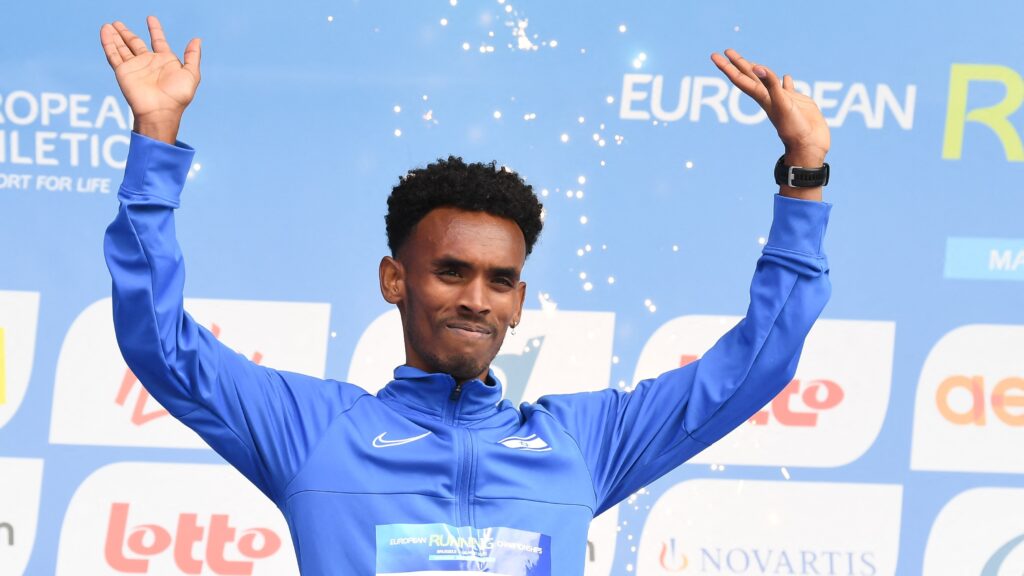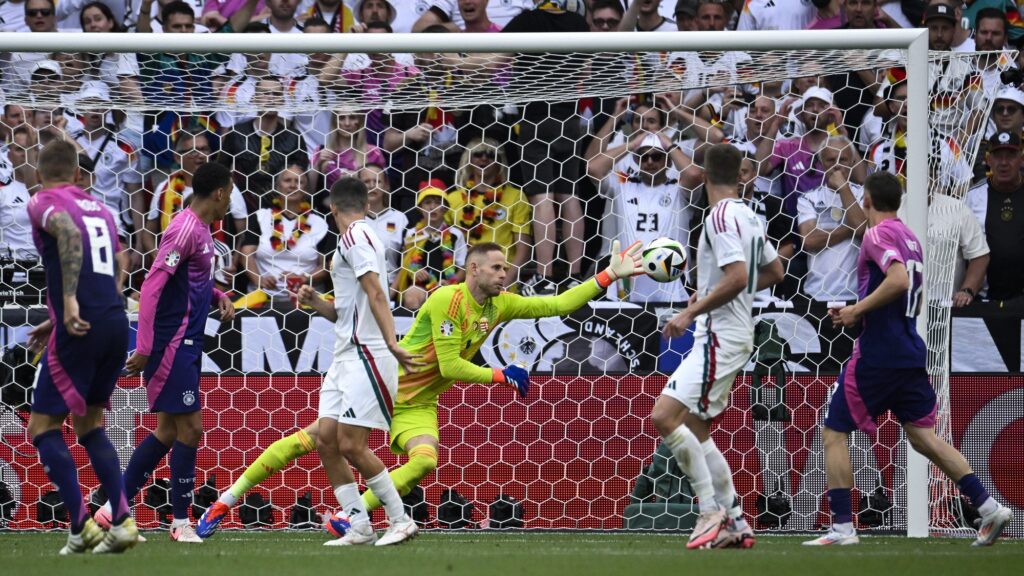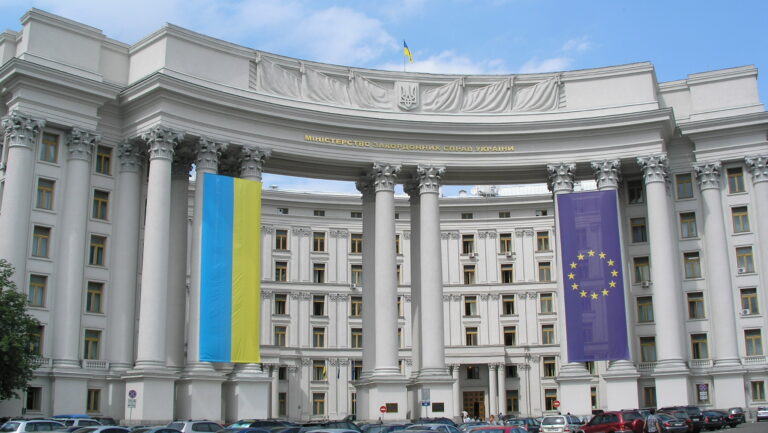On 16 January, Germany’s Christian Democrats (CDU) elected a new party chairman, Armin Laschet. Where will he lead the party, and will he be the new chancellor?
Germany’s strongest party, the Christian democrat CDU, has a new chairman: Armin Laschet. But is he as strong as his party? Chancellor and former CDU Chief Angela Merkel, who says she is leaving politics, was quick to test his resolve. Laschet was elected on 16 January, by an unimpressive majority of 53 per cent, in the second round of voting at the CDUs first fully digital party convention. However, German laws do not recognize online elections, and so the matter had to be officialized via mail- in paper ballots. Here, Laschet got 83 per cent. It helped that this time he was the only candidate. At any rate, he had to wait until 22 January to officially become party chief.
Initially a frontrunner, Laschet became something of an underdog in the months preceding the vote. Since 2017 he has been Prime Minister of the federal state of North Rhine Westphalia (NRW), the most populous of Germany’s states. That worked to his advantage, as the local CDU branch is also the most powerful within the party, with the greatest number of members and thus of delegates to the convention. However, NRW made a relative mess of its Coronavirus crisis management. Laschet himself was seen by many as a poor communicator (and a poor crisis manager). This contributed to him being outflanked in opinion polls by his rival for the party leadership, Friedrich Merz, and his rival for the chancellery, Bavaria’s Prime Minister Markus Söder. Söder, however, belongs to another party: CDU’s ‘sister party’ CSU, present only in Bavaria. He was thus not a competitor for the job of CDU chairman.
Virtually all observers agreed on the eve of the vote that it was impossible to predict the outcome. Merz seemed strongest, but there was a third candidate, Norbert Röttgen, who, though surely unable to win, had a substantial and growing following. Would his supporters vote for Merz or Laschet in the second round?
All bets were off until Angela Merkel spoke at the convention. She bluntly signalled whom she wanted to win. She preferred ‘a team’, she said. Only Laschet had campaigned with that slogan: he and Health Minister Jens Spahn would form a ‘team’ to lead the party (and maybe later the country), whatever that was supposed to mean. Merz had been the favourite until Merkel spoke. But Laschet, ‘Mr Team’, emerged as the winner. ‘Teammate’ Jens Spahn was soon forgotten. ‘Yes, it’s true that I spoke of a team’, Laschet said after his victory. But there could only be one candidate for the chancellorship. No wonder that the media were unanimous in labelling Laschet as ‘Merkel’s candidate’ who would continue to lead the party in the spirit of the chancellor.
‘Absurd to Call Merkel a Sadist, but…’
Merkel, however, despite her support for him at the convention, did not treat him kindly. On 26 January, Laschet’s very first real working day as the new party leader, Chancellery Minister Helge Braun made a proposal in an interview with the daily Handelsblatt: the constitutional limit on new structural state debt (0.35 per cent of GDP) should be suspended for a ‘limited time’ in order to stimulate the economy during the COVID pandemic. The constitution, said Braun, should be amended accordingly. This was a political ambush of Machiavellian finesse. Die Welt editor Ulf Poschard went so far as to write, tongue in cheek: ‘Of course it would be absurd to speak of sadism, but …’
Merkel herself had introduced the debt limit in 2009. To abolish it, even temporarily (but then why change the constitution) would amount to a first—and huge—policy change of the CDU under Laschet. But the initiative did not come from Laschet. It came from Merkel, the Chancellor. Helge Braun, the Chancellery Minister, is the man who implements whatever she instructs him to. If Laschet embraced the proposal, this would signal that he preferred being led, rather than leading.
‘All bets were off until Angela Merkel spoke at the convention’
A whiff of surrealism surrounded the idea, but it did have a clear political purpose. There was no need for ‘suspending’ the debt limit. Parliament had suspended it anyway and was going to suspend it again, on a yearly basis, as long as necessary to combat the pandemic and its economic fallout. Also, with the Liberals (FDP) against it, a constitutional amendment would only be possible with with whom the CDU has declared any kind of cooperation, including voting together, a total taboo.
The proposal was a triple trap: if adopted, it would define the battlefield for the upcoming elections in October to the detriment of the Social Democrats (SPD), who demand higher taxes. The dividing line between CDU and SPD would thus become ‘vote for CDU and more debt’ versus ‘vote for SPD and higher taxes’. Both parties are coalition partners now, but will probably part ways after the election. It also signalled a wish to envisage a coalition with the Greens, who like the idea, and seemed intended to offend the liberal FDP—a potential alternative for a coalition government. And it looked like it was intended to make Laschet look weak. In the end, he mastered the challenge elegantly and effectively. He first sent out CDU surrogates to swat down the idea. Then he himself said the debt limit was a core tenet of CDU policy. Then followed a jab at Helge Braun, without naming him: ‘If members of government want to change the constitution, they should first speak with the party.’
Even so, the stage is now set (by Merkel) for a coalition with either the Greens or SPD who want both more debt and higher taxes, and probably without the economically liberal FDP, which opposes those policies. One CDU politician spelled out the deal on Twitter, with a pinch of sarcasm: the CDU would hold on to the debt limit in the electoral campaign, and then sacrifice it once coalition negotiations got under way.
Laschet—a Male Merkel, or an Anti-Merkel?
With all this jostling for position and manoeuvring in the post-Merkel CDU, Laschet needs to show who he is. Indeed, experts and journalists are trying to understand what he stands for. The immediate pundit consensus was by and large that he is a political Nobody, an accommodating type whose only ambition is to continue Merkel’s policies. A male Merkel. It is a view that sounds plausible enough at first sight: Laschet himself has vouched for continuity in the party, has described himself as a team player, and Merkel did indirectly recommend voting for him. Nevertheless, a good argument can be made that the opposite is true: Laschet is nothing like Merkel.
He is as West German as one can possibly be, from Germany’s westernmost city of Aachen. A fairly large city (250,000 inhabitants) with a proud but warm local culture and a rich history as the ceremonial centre of the Holy Roman Empire—this is where Emperors were crowned. Merkel is a child of the dreary, formerly communist East. She grew up in Templin, a rural town of 17,000 inhabitants, near the Polish border. Aachen and Templin: Worlds apart.
Laschet was essentially born into Christian Democracy and joined the CDU at age 18. Merkel never actively joined the CDU. She first pondered joining the social democratic SPD after the fall of communism, but decided against it because it was a complicated procedure. Instead, she joined a small, new party called Demokratischer Aufbruch (DA; Democratic Awakening) which then fused with the East German CDU, which then fused with the West German CDU. Merkel’s DA membership was automatically transformed into CDU membership.
Laschet is a devout Catholic, while Merkel the daughter of a protestant pastor. Laschet grew up in a closely-knit, conservative world where friends, relatives and party colleagues took care of each other. Merkel grew up in a world where one could never know who was spying on whom, and where everyone stabbed everyone else in the back.
Merkel has broken more than one budding rival, including Laschet’s two recent competitors for the party leadership, Merz and Röttgen. Both had earlier been CDU hopefuls, but Merkel broke them before they could get big enough to pose a challenge. Merz led the CDU/CSU parliamentary group starting from 2000, but in 2002 Merkel demanded that influential job for herself and got it. Merz left politics altogether in 2009, in his words due to internal differences in the party—a thinly veiled way of saying Merkel was blocking him from having any meaningful political future.
He attempted a comeback, campaigning for the CDU leadership in 2018 and then again in January of this year, but on both occasions Merkel used all her influence behind the scenes to ward him off. Röttgen, who had been Minister for the Environment, was fired by Merkel in 2012 after he lost an election in North Rhine Westphalia. And also perhaps because he had opposed some of her policies. The public announcement of his dismissal took Merkel 90 seconds, no questions allowed, Röttgen not present. He had, until then, been labelled ‘Muttis smartest’ by the media, and counted as one of her closer collaborators.
There has probably never been such a thing as ‘Merkel’s closest’ political companion. She is cold as ice when push comes to shove. As for her treatment of the two politicians she successively handpicked to succeed her at the helm of the party, Annegret Kramp- Karrenbauer (AKK) in 2018 and now Laschet— she immediately worked to undermine both. Which led Ulf Poschardt, as already noted, to write: ‘Of course it would be absurd to speak of sadism, but …’ Gentle reminder: Merkel rose to power by pushing Helmut Kohl over the cliff via a ‘letter’ to him, that she sent for publication in the conservative daily Frankfurter Allgemeine Zeitung. Kohl had been her political ‘father’, plucked her from obscurity, generously protected and groomed her for a leadership role. But there are no friends in politics. Merkel’s letter forced him to resign as the party’s honorary chairman. He had lost the last elections and had already stepped down as party chairman. But he still wielded enormous influence—until Merkel’s
cold act of political patricide.
In the sense of caring for one’s own, Laschet probably has more in common with Kohl than with Merkel. He does not break opponents and rivals, does not usually attack them, does not even attack the opposition. At least not by Anglo-Saxon or Central European standards, where politics is a blood sport. Laschet’s style is to embrace his opponents. As a result, he has few real enemies.
Immediately after his election to the party leadership, he set out to woo the key supporters of his main competitor, the much more conservative, and economically much more liberal, Friedrich Merz. Merz gave in. From now on he would support Laschet, he declared, and called on all others to do the same.
For all their differences in style and character, there is one thing Merkel and Laschet do in fact have in common: a non- confrontational style of political communication. Despite her internal ruthlessness and strategic U-turns (a sudden end to nuclear energy, her policy of open borders for refugees, and now perhaps an end to spending discipline) Merkel’s message to Germans has always been: go back to sleep, everything is in order, nothing is happening. Laschet is much like that. His message is one of equilibrium. But unlike Merkel he also seeks that balance, rather than upsetting it time and time again. The price he pays for that is a lack of contour, even in his writings—in his professional life, he started out as a Catholic journalist.
‘We Must Make Clear that the CDU Is Not Conservative’
So what does he stand for? For one thing, he certainly puts the ‘C’ back in ‘Christian Democracy’. His Chief of Staff in NRW, Nathanael Liminski, is a Catholic traditionalist who holds a dim view of sex before marriage. At the same time, Liminski is a highly efficient political operator held in great esteem by the party elite. Some say that Laschet owes his rise to the top to this one man.
There can be no doubt about Laschet’s identity as a practicing Catholic, whereas Merkel’s beliefs, whatever they may be, have never seemed to be a point of orientation for her policies. Where Merkel believes in the laws of nature—winds can blow from different directions—Laschet believes in core tenets: principles not to be cast aside, positions to be defended even if the wind has changed. He does not approve of gay marriage, something Merkel allowed to become a legal right.
However, those core tenets are, for him, Christian rather than conservative. He spelled it out in 2018: ‘We must make clear that the CDU’s brand is at core not conservative, but that the Christian image of the human being stands above everything.’ For Anglo-Saxon observers this distinction may sound strange. But German Christian Democracy has always had a social, caring, somewhat statist and empathic side to it. Economically liberal ‘Tories’ in Britain or hard-nosed US Republicans have never really had counterparts in German politics. It has always been ‘us all together’ rather than ‘let everyone find his own path’. In that sense, Laschet’s soft brand of Christian Democracy builds on a German tradition.
In one of his very first appearances in his new role as party chairman, Laschet explained his greatest worry: that regional elections on 14 March could bring about coalition governments of Greens, Social Democrats (SPD) and Liberals (FDP) in both Rheinland- Pfalz and Baden-Württemberg. That, he argued, could be the precursor for something similar on the national level as well. If the Greens took care of environmental issues, the SPD dealt with social questions and the FDP made the economy a priority, then what, he asked, would be left for the CDU? National identity, one might have answered, but no- one did.
‘We must make clear that the CDU’s brand is at core not conservative’
Laschet has always aimed to modernize the CDU and most of his positions are moderate. He does not want Turkey to join the EU—but has been a defender of Merkel’s migration policies. Indeed, in 2005 he became NRW’s Minister for Integration, the first such job description in Germany at that point. At the time, he argued that 38 per cent of Germany’s inhabitants under the age of six had a ‘migrant background’ and that Germany needed to offer them a future. His positions on the EU have included a demand that there should be a directly elected EU president. He has always stuck to the traditional German strategy that a close friendship with France is the key to European unity. France’s President Macron, a man who likes to view the future in a crystal ball, and to tell the world what he sees, has cultivated Laschet as a potential new ruler of Germany. Laschet seems to enjoy the attention lavished on him in Paris. In foreign policy, he is a pragmatist who prefers working with Russia and China economically rather than working against them politically. That may inform his future stance on relations with the Central European countries, who are often accused in the West of being ‘autocratic’, but who economically have become more important for Germany than even its relations with France.
Will He Be the Next Chancellor?
Nothing of this will matter much if he does not become chancellor. Normally it should be a no- brainer. He leads the CDU, and the CDU leads in opinion polls. It is almost unimaginable that the next government should not be led by the strongest party. And if the CDU does govern, it would only be natural for it to provide the chancellor as well. Helmut Kohl once said that chancellorship and party leadership needed to be in one hand.
And yet, that outcome is not inevitable. As Laschet himself pointed out, the Greens may indeed become so strong that they could govern with the SPD and the FDP, or perhaps the post-communist Linke, even if the CDU remains the strongest party. At the time of writing, that seems like a fantasy. Laschet’s election as CDU chairman has produced a ‘bump’ for the party in opinion polls, and it currently stands at around 37 per cent, a comfortable position from which to choose a coalition partner. Greens, SPD and FDP (or Linke) add up to around 40 per cent. No majority in sight there. But the CDU is also benefiting from a ‘COVID Bonus’. Before the pandemic, the party had dropped to below 30 per cent, while the Greens had risen to 21−25 per cent in opinion polls. The governing party profited from the fact that it had done reasonably well in managing the problem. But that mood can change, if the CDU mismanages its vaccination strategy, as it seems to be doing at the time of writing (early February), and/or if the economic fallout of the crisis becomes too painful at just the wrong time.
Even if the CDU and its sister party, the CSU, fulfil expectations, win the election in September, and form a government with the Greens, or the SPD, or the Liberals, of some combination thereof, Laschet may still lose the fight for the chancellorship to CSU-Chief Markus Söder. Polls show that he is much more popular than Laschet, and that voters want a CDU−Green government—which is what Söder has been working to make possible. Greens and CDU/CSU would be ‘an exciting team for the future’, he said on 8 February, and added that the Greens were ‘a much more reliable partner than some others’. This came at a time when an opinion poll (of 25 January) showed that 68 per cent of Germans did not believe Laschet would be a good choice to lead the country. Only seven per cent thought he was the right choice for chancellor (11 per cent said ‘maybe’). But 50 per cent thought Söder would be ideal or at least good enough.
Söder has invested heavily in becoming the man to potentially lead a CDU/CSU−Green government, although never directly. Polls show that the Green’s electorate prefer him to Laschet. His path to become candidate leads through a consultation process with the CDU. The decision will be made in March. Laschet has publicly said that he wants to be the candidate, and he is the chief of the stronger party. So his voice should be decisive. Unless, behind him, Merkel is still running the party.








